Both the Michelin Defender (T+H) and the Michelin X Tour are all season tires. X Tour and T+H although are marketed with different names, they are both same tires, and you’ll only see slight variants in their sizes, that’s why here we are going to be comparing Defender with the new Michelin X Tour A/S 2 which claims to have 18 months of more tread life.
After hours of research here’s what we’ve found: The Michelin Defender still offers a better dry traction overall where it shows better dry braking distances and faster handling times. On the other side the Michelin X Tour AS/2 offer a better wet performance with better hydroplaning resistance, with smaller weight, the tire also offers better fuel efficiency as well, and less rolling resistance also provides better mileage capability for this tire as well.
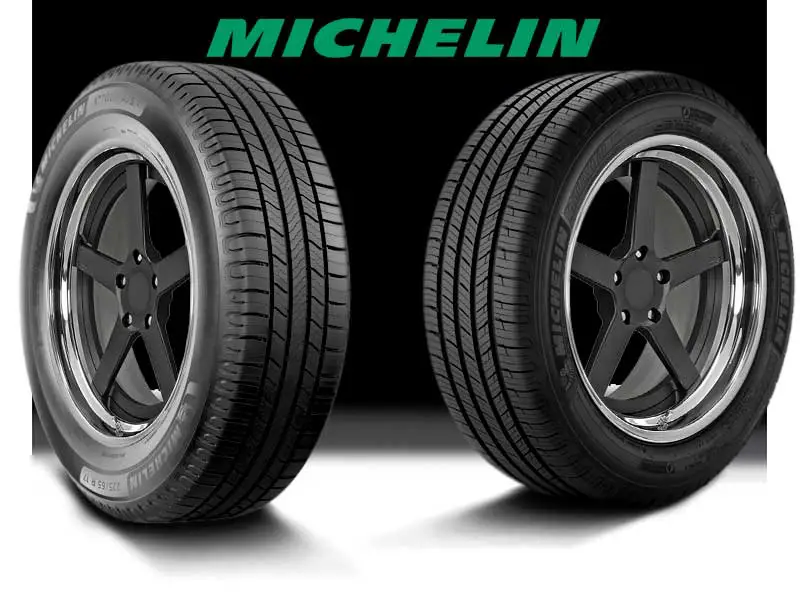
X Tour tires are Costco members exclusive, and they are the same. So X Tour is same as T+H, while the newly updated tire, the X Tour AS/2 is the same as the Michelin Defender 2.
Table of Contents
Tread Design
Michelin Defender T+H
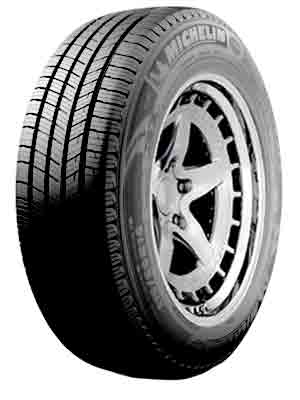
Michelin X Tour AS2
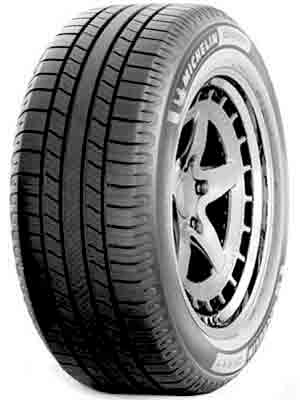
During handling/cornering, the tire sides come in to action. So their handling performance can be explained by looking at their shoulders.
Starting from X Tour, with this newer tire, the shoulders now have bolder design with “J” shaped groove pattern joining the first circumferential grooves, (highlighted below).
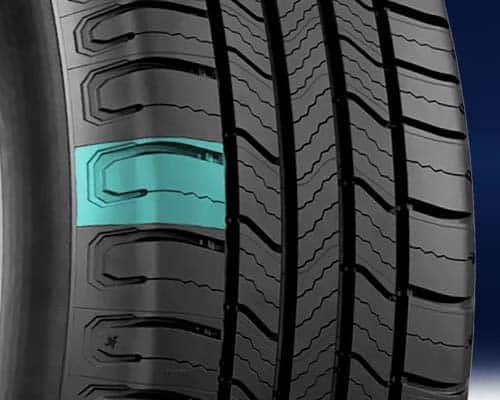
Its a continuous rib and besides this groove and wave-like siping there’s not much going on.
So with more minimalist design, the tire’s shoulders now make more contact with the road, allowing it to have better lateral traction in comparison (which helps in handling).
On the other side, the Michelin Defender shoulders are not continuous and they have a combination of rectilinear and wave-like siping and notches/incisions as well.
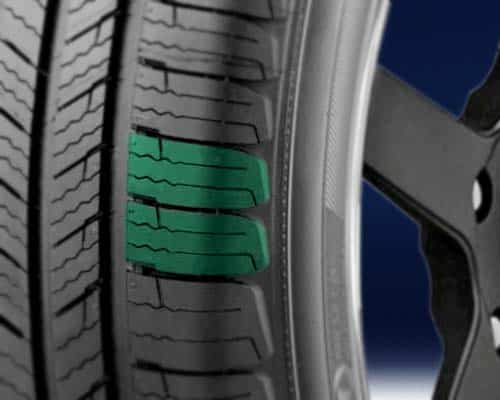
So, as we’d see in the performance section, with these numerous sipes, the tire shoulders wipe away more water in comparison. That’s why the tire has better cornering ability on wet asphalts.
Basically, when the tire with sipes roll over the water, the sipes under pressure push away the air out and this creates a vacuum which sucks the water particles.
These water particles are then sprayed out when the tire roll over and is back in the air (with no pressure).
But with more sipes/lateral grooves, the tire also has to compromise a little bit on dry traction, as it also takes away the contact area with the road.
If we move towards the middle, then in case of Michelin X Tour, the whole pattern looks like a big wave.
Here the central rib of the tire don’t make any blocks. (They did this to again increase the contact with the road).
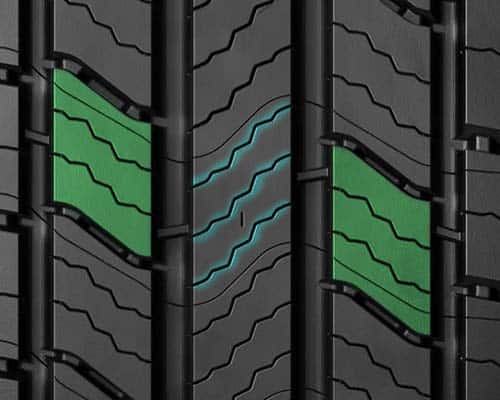
Instead of blocks, now there are only wave like sipes. (Outer 2 rows still show blocks with tie bars).
On the other hand, with the Michelin Defender T+H, it makes sense why this tire performed better on wet roads, as it is seen with wave like siping everywhere in the middle.
And the central rib (marked with pink siping) doesn’t make proper blocks, for the sake of making more contact with the road. And the one with green colored siping has small notches in corners.
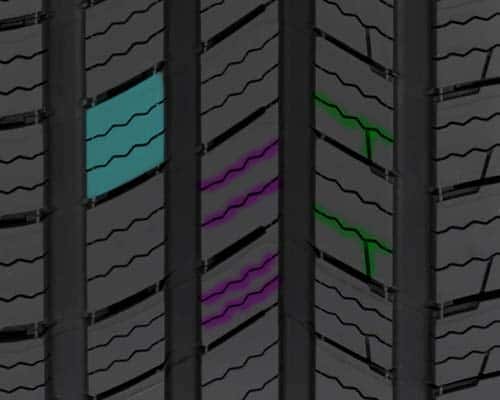
So, overall, with more contact ability Michelin X Tour provides a comparatively stronger grip on dry paths due to its better uniformity, while the Defender shows great performance on wet roads.
Which Tire Provides better Performance?
When calculating on road performance there are a lot of factors to keep in mind.
Sure traction is there (in wet and dry conditions), but there’s also hydroplaning, wear, comfort and fuel consumption.
Now with more weight and more contact with the road, it would seem, the Michelin X Tour needs more energy to “roll” consuming more fuel. But that’s not the case….
| X Tour A/S 2 | Defender T+H | |
| Total Sizes | 16 to 18″ | 15 to 18″ |
| Avg Weight (All Sizes) | 25.8 lbs | 21.8 lbs |
| Tread Depth Range | 10.5/32″ | 10/32″ |
There is one more factor in play here. The tread’s compound.
The Michelin Defender offers you with a slightly softer one and it produces a sticky effect with the pavements and this increases the rolling resistance slightly.
If we talk about float speeds, again Michelin X Tour has a upper hand now, with its newer tire. It provides more tread depth so more volume of water can evacuate from its channels.
But still overall, the wet traction is still seen better on the Michelin Defender (T+H), with its Inetlli-Sipe Technology with more sipes.
And besides numerous siping, the softer compound also aids this tire a lot. (Stiffer compound is always bad for wet traction).
| Tests | Defender T+H | X Tour A/S 2 |
| Dry Grip | 85 feet | 82 feet (better) |
| Dry Handling | 104 sec | 103 sec (better) |
| Wet Grip | 122 feet (better) | 124 feet |
| Wet Handling | 69 sec (better) | 70 sec |
But with stiffer compound and more contact with the road, the Michelin X Tour is better on dry pavements.
Tread wear Differences:
Both of these tires have the same 80k miles warranty. But with newer compound, the newer tire, X Tour A/S 2 would last a little longer.
The tire outlasts the predecessor by up to 24k miles, giving these tires additional 18 months more life (according to Michelin own testing).
Other than this, if we look at the tread depth of both tire, the Michelin X Tour shows you with a slightly deeper one.
So this means that it would take a little more time to wear in comparison.
And we have already talked about it’s stiffer compound as well (which becomes less prone to wearing).
What about Noise & Comfort:
Both tires produce almost negligible noise.
But still, out of the two, the Michelin Defender is still a tiny bit better.
The tire is provided with a Comfort Control Technology which is not present in its peer. This ensures that the tires tread pattern is highly uniform which allows it to be quieter.
Moreover, due to its EverTread Composition, it is capable of bearing bumps nicely, giving a more comfortable ride.
On the other side, although you are not going to face it, and subjectively they seem very equal here, the X Tour gives you a slightly harder compound which does not soak up bumps as better as the Defender.
Note: Still both tires undergo MaxTouch composition which provide both of them a legendary toughness.
| Tread Comparison | Defender | X Tour |
| Composition | MaxTouch | MaxTouch |
| Tread Compound | EverTread | Silica |
To Sum Up
Well, first things first, we have seen that both these tires have a very tiny difference when it comes to both wet and dry roads.
But still overall, the Michelin X Tour showed us with better dry handling as well as grip.
While the Defender showed better performance in wet conditions.
Other than this, Defender also showed better road comfort as well, but at the same time despite being slightly lighter of the two, it still showed a tiny bit of a more rolling resistance.
So where the Michelin X Tour would save you some fuel money in the long run, it would also last a little longer as well.


